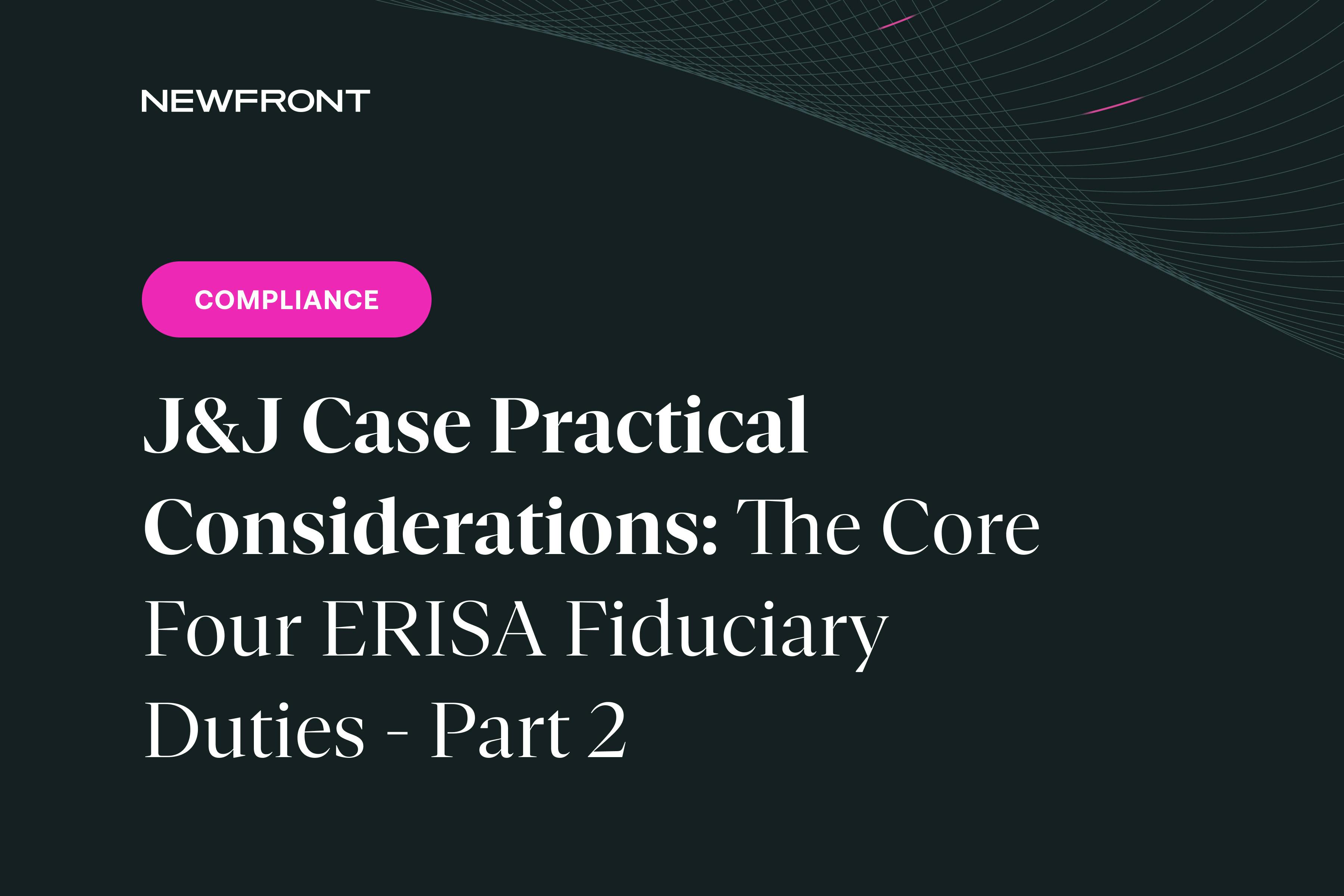Section 125 Cafeteria Plan Document Effective Date
By Brian Gilmore | Published May 11, 2018
Question: Can an employer sign a Section 125 plan document, including a restatement or amendment, with a retroactive effective date?
Compliance Team Response:
Prospective Plan Document Adoption
The Section 125 cafeteria plan needs to be signed (adopted) on or before the first day of the plan year that it will be effective.
If an employer signed a cafeteria plan document with an effective date prior to the date the document is signed (i.e., with a retroactive effective date), the IRS could find that the document is not a valid cafeteria plan. In that situation, employees would not receive the Section 125 safe harbor from constructive receipt, resulting in all employee Health & Welfare premiums and FSA pre-tax elections becoming taxable to the employee.
There are two cases where the court has agreed with the IRS position that cafeteria plan documents cannot have a retroactive effect. In Am. Family Mut. Ins. Co. v. United States, 815 F. Supp. 1206, 1214 (W.D. Wis. 1992), employees participated in a health FSA and dependent care FSA before the cafeteria plan document was adopted. The court found that the contributions had to be included in the employees’ Form W-2 gross income and subject to withholding and payroll taxes. The employer’s tax liability from the error was $433,000.
The other case is Wollenburg v. United States, 75 F. Supp. 2d 1032, 1036 (D. Neb. 1999). In that case, the court relied on American Family to assess taxes on health FSA contributions made prior to the plan being adopted in December of the plan’s calendar plan year. The result was similar to that in American Family.
In summary, the employer must sign the cafeteria plan document on or before the effective date of the plan to be valid under Section 125.
Prospective Amendment or Restatement Adoption
Just as the initial cafeteria plan document must be adopted prospectively to be effective, so to must any subsequent plan amendment or restatement.
In other words, a Section 125 cafeteria plan amendment or restatement cannot have retroactive effect. The employer must sign the amendment or restatement on or before the date for which it is to be effective.
If the amendment or restatement includes an effective date prior to the date of its adoption, it will not comply with Section 125, and employees would not receive the Section 125 safe harbor from constructive receipt. That could result in the employee H&W premium and FSA pre-tax elections becoming taxable to the employee for the amendments at issue.
The IRS regulations below confirm the IRS position prohibiting retroactive cafeteria plan effective dates.
Regulations:
Prop. Treas. Reg. §1.125-1(c):
(c) Written plan requirements.
(1) General rule. A cafeteria plan must contain in writing the information described in this paragraph (c), and depending on the qualified benefits offered in the plan, may also be required to contain additional information described in paragraphs (c)(2) and (c)(3) of this section. The cafeteria plan must be adopted and effective on or before the first day of the cafeteria plan year to which it relates. The terms of the plan must apply uniformly to all participants. The cafeteria plan document may be comprised of multiple documents. The written cafeteria plan must contain all of the following information—
…
(5) Amendments to cafeteria plan. Any amendment to the cafeteria plan must be in writing. A cafeteria plan is permitted to be amended at any time during a plan year. However, the amendment is only permitted to be effective for periods after the later of the adoption date or effective date of the amendment. For an amendment adding a new benefit, the cafeteria plan must pay or reimburse only those expenses for new benefits incurred after the later of the amendment’s adoption date or effective date.
(6) Failure to satisfy written plan requirements. If there is no written cafeteria plan, or if the written plan fails to satisfy any of the requirements in this paragraph (c) (including cross-referenced requirements), the plan is not a cafeteria plan and an employee’s election between taxable and nontaxable benefits results in gross income to the employee.

Brian Gilmore
Lead Benefits Counsel, VP, Newfront
Brian Gilmore is the Lead Benefits Counsel at Newfront. He assists clients on a wide variety of employee benefits compliance issues. The primary areas of his practice include ERISA, ACA, COBRA, HIPAA, Section 125 Cafeteria Plans, and 401(k) plans. Brian also presents regularly at trade events and in webinars on current hot topics in employee benefits law.
Connect on LinkedIn

